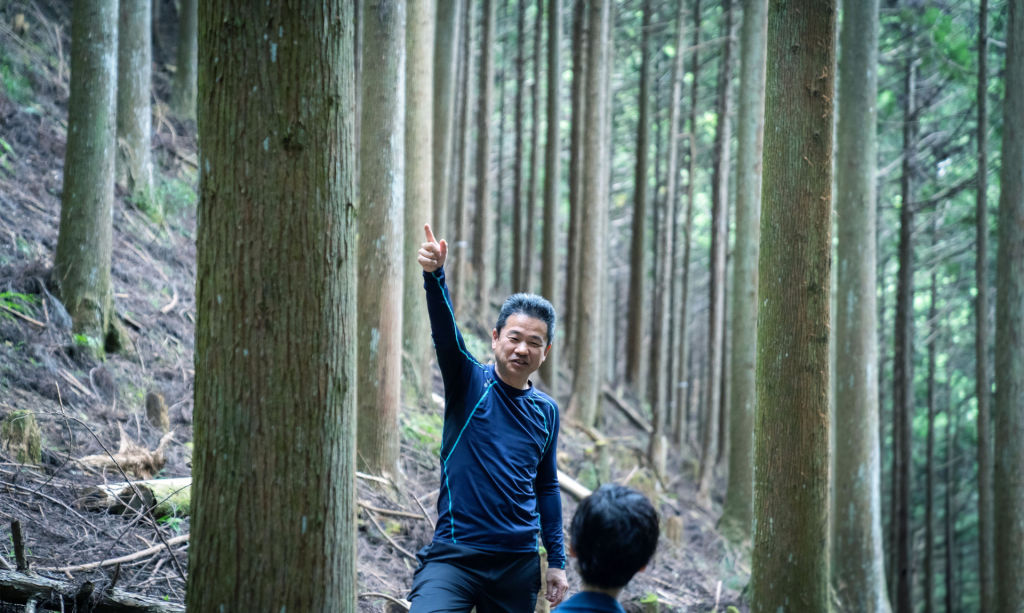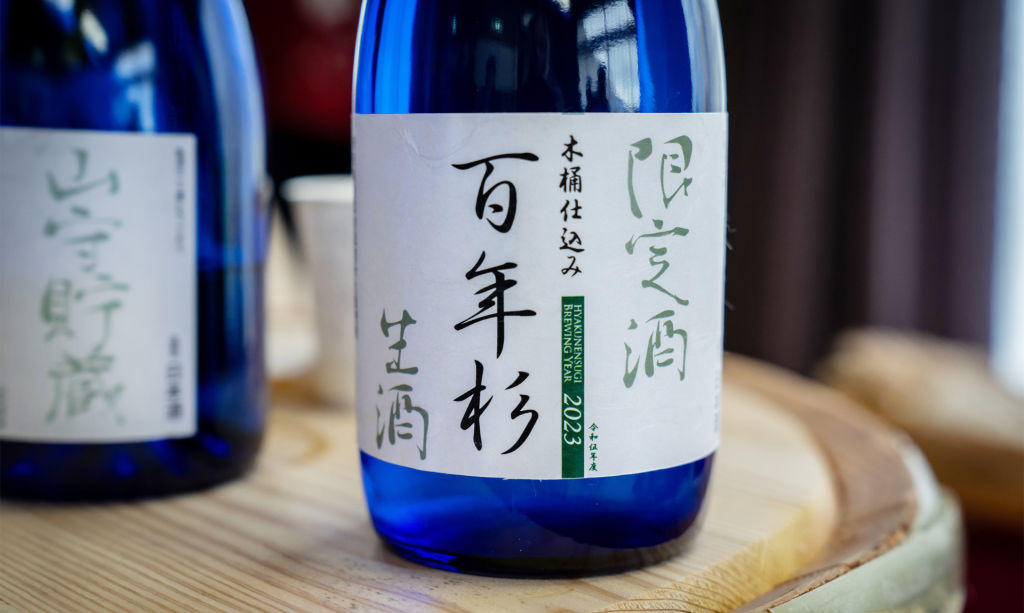
THE PEOPLE OF YOSHINO in Nara Prefecture have always been connected to the forest. The area is well known for its magnificent cedar trees, which local residents have long used to make handcrafted wooden barrels. Sadly, this art has almost been lost.
Cedar barrels are often used in traditional fermentation and for storing Japanese sake—and the skill of handcrafting them is passed down through families and selected apprentices, creating a deep connection between Yoshino residents, their craft and their natural environment.

Miyoshino Jozo, a sake brewery owned by the Hashimoto family, is renowned for using these crafted wooden barrels. They have been making sake here for more than a hundred years. The current brewmaster, or toji, is fourth-generation Teruaki Hashimoto.
His sake, like all Japanese sake, is made from only water, rice, and koji (a mould that turns starch into sugar for fermentation), and he uses only local ingredients. He believes in working in harmony with nature and has adapted old brewing techniques to suit.
To highlight his brewery’s bond with the forest, he has created a special sake that is stored in nearby cedars. The sake is both an homage to the area and the communities involved and an attempt to preserve and nurture the traditions of his hometown and its industries.
So, on the day of the spring equinox, Hashimoto brings some some sake to the forest to rest for six months. He works with seventh-generation Shota Nakai—a yamamori, or forest ranger—whose family line through the generations has been tasked with the care of these trees. Cedars like this take 100 years to grow, meaning that three generations of forest rangers have been entrusted with their care. Nobody can predict whether a tree will grow strong and tall from its seed; they must learn to trust nature and let the forest to do its thing.

The sake that Hashimoto brings here is carefully wrapped and left to rest in a small hut. It is not just any sake; it is taruzake, sake matured inside a taru or wood barrel made from the same trees it is surrounded by in the forest. The cedar-wood staves of the taru have been handmade by Koji Oguchi, one of only 10 craftsmen left in Japan who possess the skills to make them.
After six months of maturation, the sake is carried back on the day of the autumn equinox. Just as the forest rangers cannot control the growth of the trees, Hashimoto, the skilled brewmaster, has no control over the sake. He calls it “100-year cedar mountain sake”, referring to the time it takes for the cedar trees to grow. The name also reflects the hard work of all those involved, their dedication, passion, and patience. The distinctive wooden scent of the taru transfers to the sake, while the maturation period imbues it with added depth. The result is worth the wait, well-balanced yet complex and mellow with a slight amber hue and a memory of cedar.










